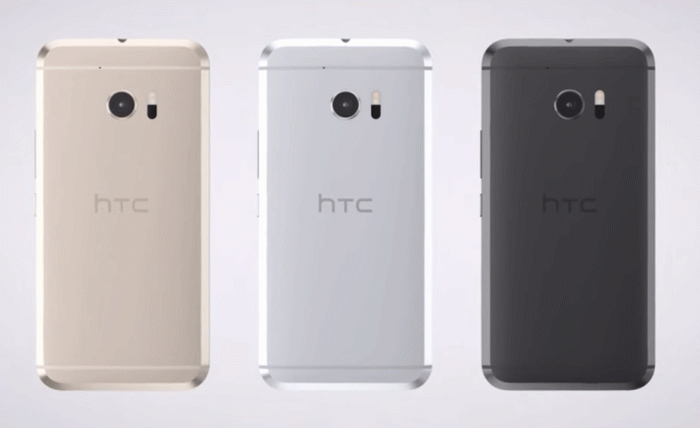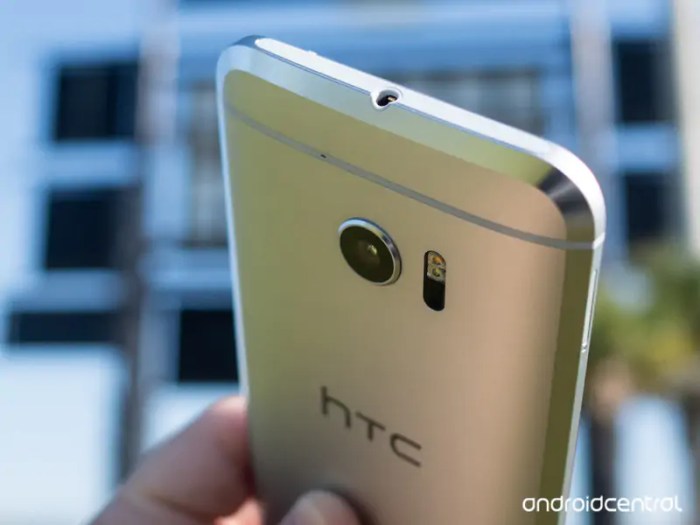Htc 10 teased yet again – HTC 10 Teased Again: What to Expect. The smartphone world is abuzz with speculation as HTC, a once-dominant player in the mobile landscape, hints at a potential comeback. Rumors of a new HTC device have been swirling, sparking curiosity and excitement among tech enthusiasts. While the company has been relatively quiet in recent years, this latest tease suggests a renewed focus on innovation and a desire to reclaim its position in the fiercely competitive smartphone market.
The teaser itself, a cryptic image or video, has left many wondering what HTC has in store. Speculation ranges from a revamped version of the iconic HTC 10 to an entirely new flagship device. Analysts and industry insiders are closely watching HTC’s moves, eager to see how the company plans to compete in a market dominated by giants like Samsung, Apple, and Google.
HTC 10’s Legacy and Market Position
The HTC 10, released in 2016, was a flagship smartphone that marked a significant moment for HTC, attempting to regain its footing in the increasingly competitive smartphone market. While it wasn’t a commercial success, the HTC 10 left its mark on the industry, introducing innovative features and design elements that influenced future devices.
The HTC 10’s Features and Competitors
The HTC 10 boasted a premium design with a metal unibody construction and a sleek, minimalist aesthetic. It featured a 5.2-inch Super LCD5 display with a Quad HD resolution, a powerful Qualcomm Snapdragon 820 processor, and a 12MP rear camera with optical image stabilization. The device also included a front-facing fingerprint sensor and a powerful BoomSound Hi-Fi Edition audio system.
At the time of its release, the HTC 10 faced stiff competition from other flagship smartphones like the Samsung Galaxy S7, LG G5, and the iPhone 6S. These devices offered similar high-end specifications and features, with the Samsung Galaxy S7 particularly gaining traction with its innovative dual-pixel autofocus technology and water resistance.
The HTC 10’s Market Share and Consumer Reception
Despite its impressive features, the HTC 10 failed to achieve significant market share. The smartphone market was dominated by Samsung and Apple, with other manufacturers struggling to compete. While the HTC 10 received generally positive reviews for its design, performance, and camera quality, it was criticized for its high price point and lack of innovative features that could differentiate it from its competitors.
“The HTC 10 is a solid phone, but it’s not a game-changer. It’s a bit too expensive for what it offers, and it doesn’t have any killer features that make it stand out from the crowd.” – CNET review
While the HTC 10 did not achieve the commercial success that HTC had hoped for, it still holds a place in the history of smartphones as a well-designed and capable device that pushed the boundaries of what was possible at the time. It served as a reminder of HTC’s legacy as a pioneer in the mobile industry, showcasing their expertise in hardware design and software development.
The Tease and its Implications: Htc 10 Teased Yet Again

The HTC 10, a flagship smartphone released in 2016, has been the subject of recent speculation and rumors surrounding a potential successor. This renewed interest has been fueled by a series of cryptic teases from HTC, hinting at the arrival of a new device.
These teases have served to generate excitement and anticipation within the tech community, raising questions about the nature of the upcoming product and its potential impact on the smartphone market.
Reasons Behind the Tease
HTC’s decision to tease a new product can be attributed to several strategic factors.
- Reinvigorating Brand Awareness: The teases aim to revitalize HTC’s brand image and attract attention in a highly competitive market dominated by players like Samsung and Apple. By generating buzz and intrigue, HTC seeks to remind consumers of its presence and pique their interest in its upcoming offering.
- Building Hype and Anticipation: Creating a sense of anticipation through teasing can be a powerful marketing strategy. By slowly revealing snippets of information, HTC can build excitement and generate buzz, potentially leading to higher demand for the new device upon its release.
- Gauging Market Interest: Teases can serve as a gauge for market interest and consumer feedback. By observing the reactions to the teasers, HTC can gain valuable insights into what features and design elements resonate with potential buyers.
HTC’s Current Strategy and Future Prospects
HTC, once a dominant player in the smartphone market, has faced significant challenges in recent years. However, the company has been actively trying to re-establish itself with a renewed focus on niche markets and innovative products.
HTC’s Current Product Portfolio and Market Focus
HTC’s current product portfolio reflects a shift in strategy towards specific market segments. The company has narrowed its focus to areas where it believes it can compete effectively.
- VR/AR: HTC has made significant investments in the virtual and augmented reality space, with its Vive series of VR headsets gaining traction in the gaming and enterprise markets. HTC is attempting to carve out a leadership position in this emerging technology sector.
- High-End Smartphones: While not as dominant as in the past, HTC still offers premium smartphones targeting discerning users who value quality and design. These devices often feature high-end specifications and innovative features, such as advanced cameras and audio capabilities.
- 5G Infrastructure: HTC is also actively involved in the development of 5G infrastructure and networking solutions, seeking to leverage its expertise in hardware and software to contribute to the next generation of wireless technology.
HTC’s Recent Financial Performance and Market Position
HTC’s financial performance has been mixed in recent years. The company has struggled to maintain profitability due to intense competition in the smartphone market and its shift towards niche markets.
- Declining Smartphone Sales: HTC’s smartphone sales have been declining consistently for several years, leading to a significant drop in revenue and profitability. This decline is attributed to factors such as increased competition from other smartphone manufacturers, especially from Chinese brands like Huawei and Xiaomi, and the rise of alternative devices like smartwatches and smart speakers.
- Focus on VR/AR: Despite the challenges in the smartphone market, HTC’s investments in VR/AR have shown some promise. While the Vive series has gained traction in specific markets, the overall VR market is still in its early stages of development, and it remains to be seen whether it can become a significant revenue driver for HTC.
- Market Share: HTC’s market share in the global smartphone market has shrunk considerably, ranking among the smaller players. The company faces a significant uphill battle to regain its former market position.
Potential Impact of a New HTC Device on the Company’s Future
The introduction of a new HTC device could have a significant impact on the company’s future, depending on the device’s features, target market, and overall strategy.
- Rejuvenating Brand Image: A successful new device could help HTC re-establish its brand image and attract new customers, particularly if it offers innovative features or addresses a specific market need. This could help the company regain some lost market share and improve its financial performance.
- Boosting Sales and Revenue: A new device could generate increased sales and revenue, particularly if it targets a large market segment or offers compelling features that differentiate it from competitors. This could provide HTC with much-needed financial resources to invest in future product development and marketing.
- Strengthening Market Position: A well-received new device could help HTC solidify its position in its chosen market segments, such as VR/AR or high-end smartphones. This could create a more sustainable future for the company, enabling it to compete more effectively against its rivals.
The Potential Impact on the Smartphone Market

The re-emergence of HTC with a new device could have significant implications for the smartphone market. While HTC has faced challenges in recent years, its legacy and brand recognition could still attract attention and potentially disrupt the existing market dynamics.
The impact of a new HTC device will depend on several factors, including the device’s features, pricing, marketing strategy, and the overall competitive landscape. Analyzing these factors can provide insights into the potential challenges and opportunities for HTC and the broader smartphone market.
The Competitive Landscape and Challenges, Htc 10 teased yet again
The smartphone market is highly competitive, dominated by a few major players like Apple, Samsung, and Google. HTC faces significant challenges in re-entering this competitive landscape.
These challenges include:
- Market Saturation: The smartphone market is mature, with a high penetration rate. This makes it difficult for new entrants to gain significant market share.
- Brand Perception: HTC’s brand perception has been tarnished in recent years due to declining market share and lack of innovation.
- Pricing Pressure: The smartphone market is highly price-sensitive. HTC will need to offer competitive pricing to attract consumers.
- Strong Competition: Established players have strong brand recognition, extensive distribution networks, and significant resources for research and development.
Opportunities for HTC
Despite the challenges, HTC also has opportunities to make a comeback.
These opportunities include:
- Focus on Niche Markets: HTC could focus on specific niche markets, such as premium smartphones with unique features or specific functionalities.
- Innovation: HTC has a history of innovation, and it could differentiate itself by introducing innovative features and technologies.
- Strategic Partnerships: Collaborating with other companies, such as carriers or software developers, can help HTC expand its reach and access new markets.
- Strong Brand Legacy: HTC has a loyal customer base and a strong brand legacy, which could be leveraged to attract new customers.
Implications for Consumers
The re-emergence of HTC could benefit consumers by offering more choices and competition in the smartphone market.
Potential benefits include:
- More Innovation: Competition can drive innovation, leading to better features, improved performance, and lower prices.
- Greater Choice: A wider range of devices with different features and price points can provide consumers with more options to choose from.
- Potential for Disruption: HTC could introduce new technologies or features that disrupt the existing market and benefit consumers.
HTC’s latest tease has reignited interest in the company’s future. Whether it’s a reimagined HTC 10 or a groundbreaking new device, the potential impact on the smartphone market is significant. The company’s history of innovation and design excellence suggests that it could offer a compelling alternative to the current industry leaders. As we eagerly await further details, one thing is certain: HTC is back on the radar, and its next move could shake up the smartphone landscape.
The HTC 10 continues to be teased, keeping fans on the edge of their seats with its rumored specs and design. Meanwhile, the OnePlus 3 has been spotted in an Antutu benchmark, alleged oneplus 3 spotted in antutu benchmark , which hints at a powerful Snapdragon 820 processor and a 6GB RAM configuration. It’s exciting to see both HTC and OnePlus pushing the boundaries of mobile technology, and we can’t wait to see what they unveil next.